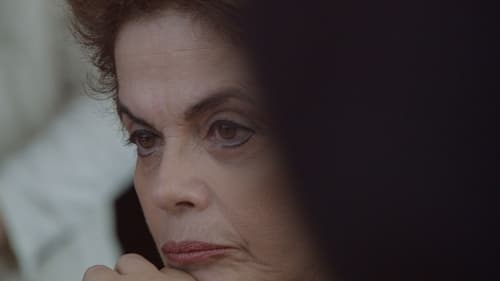
Editor
The film narrates, from an intimate point of view, the daily life of President Dilma Rousseff in her official residence, the Palácio do Alvorada, while awaiting the verdict of the impeachment process. Portraying the hallways of the palace, designed by Oscar Niemeyer, we see the coming and going of political meetings, the daily routine of the kitchen, the exchange of guards, whispers and phone calls. We feel the growing tension of officials, advisers and former ministers.

Passages showcases Brazilian films in which the utilisation of artforms and media such as literature, painting, theatre, music, photography, radio and television, functions as a 'passage' to political and social reality.

Editor
A documentarist is convinced by her son to travel to Brazil's Northeast so she can throw his dad ashes at São Francisco river.
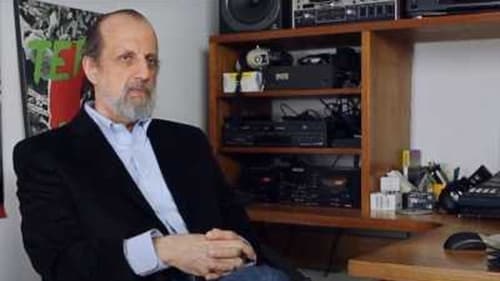
herself

Editor

Editor
Élvio and Eric live alone in a small apartment without talking to anyone else. The relationship between the two deteriorates until one day, mysteriously, a periscope appears in the room.

Editor
Serginho has a hard time finding his place in the world as he works with his uncle at the market, supports his depressed mother, and takes care of his little brother.

Editor
In a small village in the hinterland, three stories of love and desire are changing the emotional landscape of its residents. Characters of a romanesque world in which their conceptions of life are limited on one side by human instincts, on the other by a blind and fatalist fate.
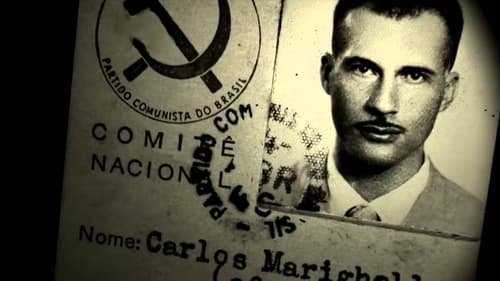
Editor
This communist and parliamentarian leader was arrested and tortured, and became famous for having written the "Minimanual of the Urban Guerrilla". Greatest name of the left-wing militancy in Brazil in the 1960s, Carlos Marighella acted in the main political events of Brazil between the 1930s and 1969 and was considered enemy number one of the Brazilian military dictatorship. His life was a great act of resistance and courage.
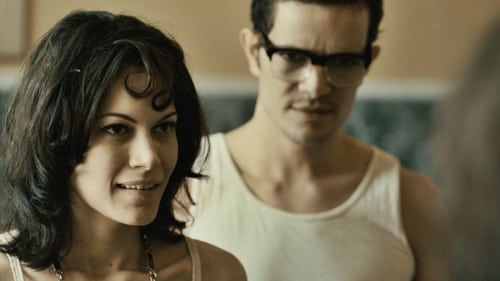
Editor
Adapted from his autobiography, the film recounts the story of Hiroito, The King of Boca do Lixo (a region in downtown São Paulo of the fifties where various nightclubs, strip joints, prostitution, bars, and drugs can be found). Hiroito was a well born bohemian and at the age of 21 was accused for the murder of his father, who was violently stabbed over 40 times with a razor. Hiroito was not charged, however two months after the death of his father, Hiroito bought two guns and moved to Boca do Lixo and became one of the most dangerous criminals of the region.

Editor
The making of an unfinished film about phobias. Says the director. Behind the screens, he discusses at length (with e.g. Coffin Joe) about the aesthetic boundaries of the project: volunteers under controlled circumstances become immersed in their phobias in order to film the fear on their faces.

Editor
The bride, the groom, the best man and a destructive passion. A wet dream turned into a nightmare. "La Dolorosa" is the second episode from "The Trilogy of Dream", an attempt by screenwriter/director Odilon Rocha to bring lyricism back to cinema.
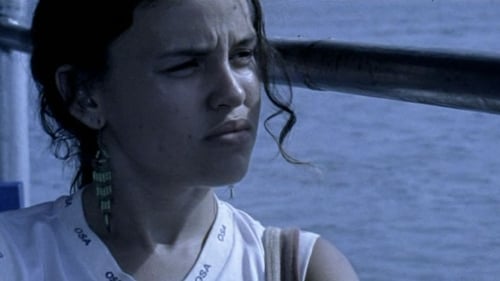
Editor
Jéssica is a teenager from Brazilian Northeast. After being abused by her stepfather, she runs away to Recife, where starts to work with sexual tourism. Then, she meets Mark, a German tourist, and falls in love with him.

Editor
Durval and his mother Carmita live at the back of "Durval Discos", a record store they own in São Paulo, specializing in vinyl records. They lead a boring and unattractive life, until the day Durval hires a maid, Celia, to help his mother with the housekeeping. However, on her second day, Celia goes away leaving a 5-year-old child behind, Kiki, and a note promising to be back in a couple of days. Durval and Celia are charmed by the child at first, but soon they see some sad news about Celia and Kiki on TV that will change the whole situation.

Editor
Couple prepare their "great voyage" in all details, not forgetting the flowers, music and luggage.

Editor
Scenes of the childhood of a girl, living in a small Brazilian town.

Editor
A Lebanese photographer living in Brazil in the '30s manages to film the band of Lampião, a legendary Brazilian bandit.

Editor
The cultural differences between the several generations of the rural maracatu: an afro-indigenous ritual which originated in the sugar mills of the state of Pernambuco.

Editor

Sound Editor

Editor

Editor
Tropicália was a Brazilian cultural movement that occurred between 1967 and 1968, inspired by Oswald de Andrade's anthropophagic ideals, pop art and the concretism. Twenty years later, this film revisits the movement and shows that Tropicalismo will never die.

Editor
The art of Oscar Blois, a miniaturist artist - paint on pins, fleas, models on lamps - a character whose personal universe includes contacts with extraterrestrials, from whom he learned mathematical calculation that he applies in domino divination games

Editor
In a beach house, snapshots of a couple's relationship are interspersed with flashbacks to a political past that still threatens their lives.

Editor
Filmmakers Cida Aidar and Inês Castilho met as part of the feminist collective that edited the newspaper Nós Mulheres between 1976 and 1979. Filmed during 1981 in the Boca do Lixo region of São Paulo, infamous for its porn cinemas and brothels, the documentary fiction 'Mulheres da Boca' reveals the lives of sex workers on their own terms, as they are captured between seduction, play, and violence, against the backdrop of the corruption and abuse exercised by those who ran the Boca de Lixo.


















